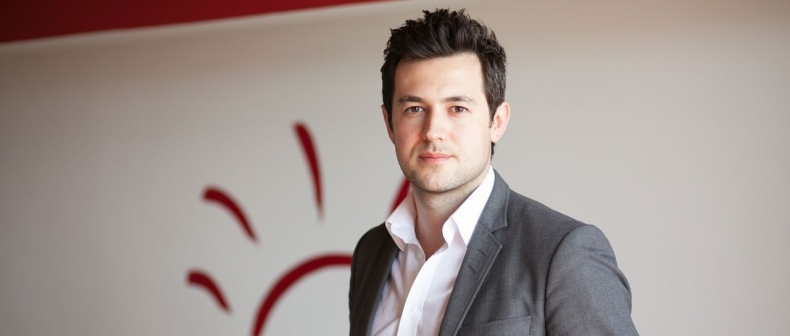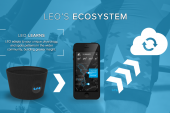
Photo courtesy of Brian Mosoff Photography
Movers and Starters is an exclusive series that profiles the individuals who drive Toronto’s startup community.
Tell us about yourself and Buytopia.
I started Buytopia about two-and-a-half years ago with Michele Romanow and Ryan Marien, two friends that I’d met at Queen’s University. Buytopia is our fourth business venture together. Some of the businesses we built were successful, others were derailed by issues that cropped up with policy changes, and for others we were just too young to raise the capital needed to make a real run at that particular business.
The concept for Buytopia fell in line with what our skill sets were at the time: We knew how to build a sales team, build the technology needed for the website, and how to acquire customers.
When we started, I was responsible for sales and customer acquisition, which involved calling small businesses and telling them why it was a good idea for them to run a daily deal on our website. At the same time, I would be negotiating with newspaper publishers and Google, trying to get discounted rates on paper ads and Google AdWords. In the last six months, I’ve been more involved in acquiring some of our competitors.
We put in $45,000 of our money to start Buytopia, and we’ve invested most of the profits back into the business. We’ve had two acquisition offers for Buytopia, both of which we turned down.
When we started there were 300 competitors in the daily deal space in Canada. Our next biggest competitor raised $15-million dollars of funding. Now there are about ten daily deal websites left in Canada. It is now almost impossible to succeed as a new daily deal company; it’s just too expensive to start signing on merchants and buying ad space.
But even two years ago I think it was fair to say that the daily deal space oversaturated, so what made you decide to enter into such a crowded space?
I think the biggest thing was that we all had some expertise in the space; by the time we started Buytopia, we had already worked on three different startups together. Each time we made the mistake of writing a lengthy business plan. On average, we spent at least four months researching the market and writing our plan. The reality is that your business plan changes after day two of operations, and you constantly need to adjust. When we started this company, we launched the business within two weeks of deciding to commit to it. We conducted enough research to know that there was a big enough market for us and that the margins were there for the company to be profitable.
Initially we bought a daily deal clone for $500. It only allowed us to post a product, a field for people to input their credit card number, and a space to advertise on. On our first day of operation, we did $10,000 in sales. When we did that much in sales on day one, I knew there was a market for what we were doing, and that the company could scale.
I’ve been told one of the businesses you started with your friends was a caviar farm. Want to tell me about that?
When my friends and I were in university, we would have dinner parties and ask ourselves what the next million dollar idea was. Eventually, we realized that there was a shortage of caviar in the world.
Since the 1970s, there’s been a 99 per cent decrease in the global caviar supply due to overfishing. We saw that the demand was still there. Keeping that in mind, we decided to try to farm raise caviar on a land-based agricultural facility, and we planned to do that with only an initial investment of $10,000.
We took our idea to business competitions across the United States and Canada. We got seven out of nine first place finishes, and managed to collect $120,000 in start-up capital while we were still in school. Initially the business took off and we were really excited. We planned on expanding and had customers lined up overseas. Unfortunately, a policy change affected our company greatly, so we ended up pivoting completely away from the business.
Five businesses later, what’s the most important thing you’ve learned?
I think the biggest thing is to just get things done. Everyone spends too much time planning and strategizing, but the only way to truly know if your business is going to work is to implement. Once you start a business, you’re going to have to change and tune it daily, and you might even have to do a 180. Whatever the case, you’re going to have to make judgment calls, and you’re going to have to make them fast. The faster you can make them, the more likely you are going to succeed. You’re not guaranteed to succeed, but you’re constantly improving your odds.
The most important lesson I’ve learned is to get started. Whatever you start, try to make sure there’s a deep river there. Make sure there is potential to make money, and that there’s a sound model underpinning your business. You also need to know that your business can scale beyond your social circle, and that you have a product or service that people will like. The only way to do it is to try things out.
What do you has been the most important factor in helping set Buytopia apart from its competitors?
Whenever I speak with a business, I ask how they want to be portrayed to the two million Canadians that use our service. Among other things, I ask them what makes them the best in their space. Based on their responses, we will post a description of their business on our website that best describes their strengths. If a spa tells us that they have some of the best treatments in the city, we’ll run a deal on that and structure it in a way that makes the customer want to return. This is why we have an 85 per cent repeat rate with our vendors.
If we send a business 500 customers that never come back to them, then we would be in trouble. It has to be a win-win situation for both the customer and business. We ask businesses to put their best foot forward. The ones that do almost always make money and gain repeat customers.
You also need a good team of people; we’ve been fortunate to have one of the best teams. When we started, we had one employee, Dev Shahani, who was so amazing and indispensable to the early growth of the company. Now, we hire people as we grow. A lot of companies make the mistake of hiring too many people at once. However, it is difficult to find many talented people to hire and show up on a daily basis. Honestly, without our team, we wouldn’t be here. I completely trust my partners and my team.
A lot of entrepreneurs I’ve spoken to have told me that they’ve always wanted to start their own business. Was that true for you?
I did not always want to start a business, but I’ve always known that I could get things done. At my previous jobs, I always thought I was being under-utilized and was not challenged enough. To try and make up for that, I would take on multiple projects, essentially challenging myself.
In my third year at university, I was unable to get a summer position in investment banking.
I decided to take a risk by going to British Colombia and starting a company with a friend. It was very chaotic and disorganized. The only great thing about it was that the margins were high, which allowed me to pay for all four years of tuition in a month and a half. After having not slept for almost two months, I had to decide if I would return to school or stay and continue working on the company. I ended up negotiating a deal with my partner for him to take over the business — a business that he still has today.
What exactly did the business do?
It was a marketing agency dedicated to selling natural gas and electricity future contracts to corporations.
Where did that come from, though — is that something your parents instilled in you?
My parents have always answered my whys. I remember when I was younger, my brother told me to stop asking why. My dad got angry at him and told him, “You have to answer every single why; otherwise, he’ll stop asking.” My parents have always entertained my curiosity, and so I’ve felt that I could get the answer to any question if I just asked.
Outside of work, what are some the things that motivate and inspire you?
To be honest, the last two years of my life have really been all about my business. Like I said, I like to travel; I could probably spend my whole life traveling if I had the means to do it. I try to stay active. I’m also very close with my family, so I try to devote time to them on weekends.
What’s next for you and the company?
Buytopia is in a very good position, because of the large user base we’ve built. We also have 40 employees that have so much potential still in them, so they’re going to help us launch two new products that aren’t in the daily deal space. We’re basically going to be using our office and resources like an incubator.
To start a company you need to dedicate yourself to it, and you can’t start three at once. I’m always looking for entrepreneurs that might not have an idea or team yet, but that are still tenacious and hardworking. We’re going to be launching two businesses from here in the near future, and maybe five or six down the line. The whole goal is to keep growing as an environment where we can incubate new ideas and truly test their potential.
____
Igor Bonifacic is a writer working for the Toronto Standard. You can follow him on twitter @igorbonifacic.
For more, follow us on Twitter @TorontoStandard and subscribe to our newsletter.














